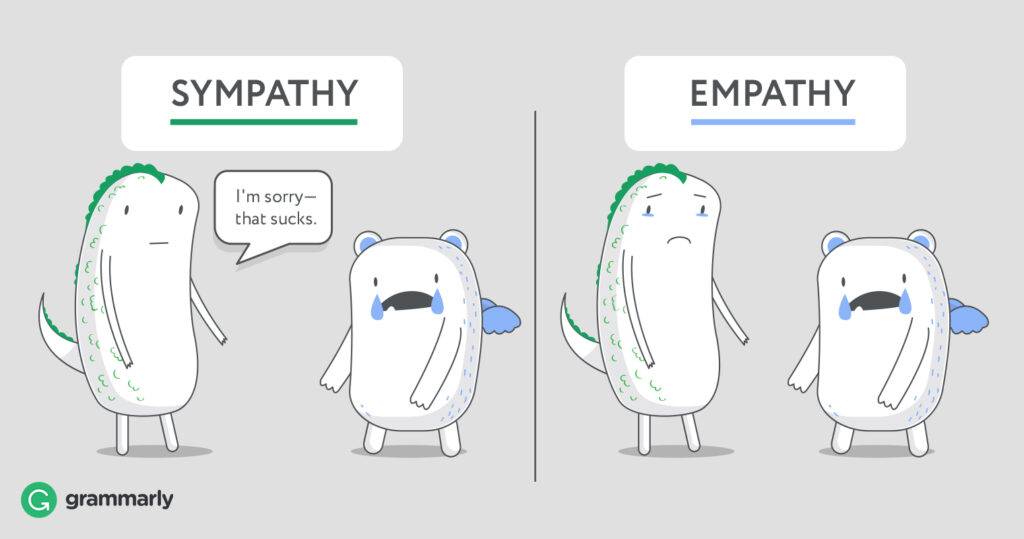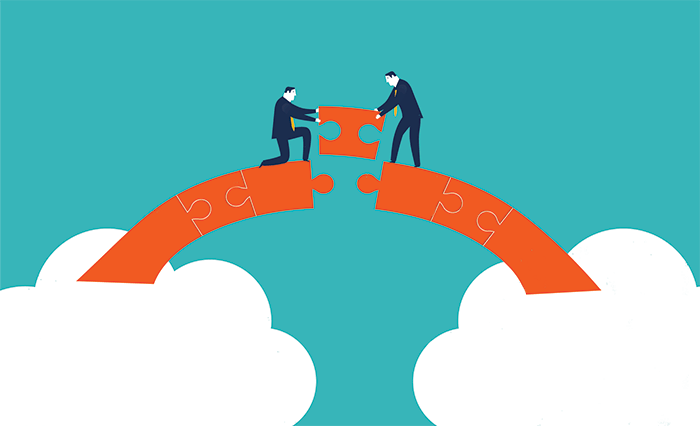I am not a sociable person. Unlike my wife and many of my friends and colleagues, I don’t make friends easily. I prefer a visit to the dentist over a networking event. For the longest time I thought that this trait was an inherent part of my personality. I couldn’t change it. It was who I was, and that was that.
Then, a defining moment in my career changed my mindset. I had just been passed over for a promotion and was almost demoted. While I had led my team to global recognition and awards, our relationships were falling apart. My team members perceived me as a leader who only cared about results and not about the people who created them. In many ways, they were right. I was rubbish at building professional relationships with my team and the rest of my colleagues.
What does research say about poor work relationships?
Unfortunately, research shows that I am not alone in my weakness. A recent finding by the Edelman Trust Barometer (a survey of 33,000 people in 28 countries about trust in the workplace) highlights that a little over 30% of employees do not trust their employer. Another survey reveals that only 50% of employees thought their leaders were empathetic, even though 92% of leaders viewed themselves this way. These are troubling results when empathy and trust are identified as two critical components of healthy relationships (inside and outside the workplace).
So, what can we do to improve work relationships? The best approach I have seen so far is used by my current company, Unity Technologies. Building professional relationships is a foundational skill of our culture. Every employee takes part in a program which includes: “How to Build Relationships,” “Active Listening,” “Driving for Alignment in Meetings,” and “Delivering Fierce Feedback.”
It is our hope, that by ensuring every employee (from our C-Levels to our frontline) has these skills, we can maintain our culture where everyone feels like owners, where they put our customers first, and where bold ideas become a reality. But before we dive into the practical skills of building relationships, we need to ensure we have the right mindset.
The Building Relationships Mindset

Your mindset is critical. In fact, I often think having the right mindset is more important than having the right skills. Consider this: would you rather have a colleague who truly believes in building strong relationships, but just doesn’t have the skills? Or would you rather have one who knows how to build relationships, but really just doesn’t believe in their importance?
Personally, I’d rather have a colleague who is interested in people and believes in the importance of empathy, trust, and understanding others, but just doesn’t know how to show them. This type of person will try and figure out their own ways of interacting and building relationships with others. Even if they don’t have the right skills, they are still trying to do things in the right way.
When it comes to building professional relationships, we believe there are three critical mindsets that you need to hold:
Relationships matter
During my first stint as a manager, I was focused on results where people were just a means to reach a desired outcome. The sad thing is that too many employees share this mindset. Maybe not to the extreme like me, but too many managers and team members struggle to put relationships first, especially in stressful situations.
Outstanding managers succeed by working through their teams, and this means the most critical role of all managers is to genuinely care about their people. In doing so, they are able to build unified and motivated teams with diverse skills, perspectives, and backgrounds. In addition, employees thrive and feel most fulfilled when their managers create a culture where everyone has an opportunity to be heard, and everyone is empowered to solve tough problems.
Caring about people isn’t only limited to managers. Being a notable colleague and teammate requires that you are genuinely interested in the people around you. Great teammates notice the successes and struggles of their colleagues. They also put the team’s success ahead of their own. Only by caring about the people around you will you be successful.
Be intentional
Early in my career I thought that relationships were only nurtured through time and shared experiences. Both elements contribute to building strong relationships in a team. But they aren’t the only ones.
Building high performing teams is an activity that requires constant focus and effort from everyone. Both managers and team members create opportunities where each person can share aspects of themselves and begin to establish relationships. Even if the team is spread geographically, everyone looks for opportunities to foster relationships. All members take responsibility and initiatives upon themselves to intentionally form a cohesive team.
Suspend your judgement, and assume best intent
One of the worst things I did as a manager and colleague was that I quickly formed judgements of people. When some of my direct reports and colleagues rubbed me the wrong way, I would often prejudge their ideas. If they said the sky was blue, I was certain that it was actually purple. My problem was that I had formed my opinions about the other person, and no matter what they said, it would only reinforce my opinions.
A coach helped me break this mindset. He asked me, “Do you think this person is presenting his ideas as a way to bring down the company?” I reflected and replied, “No.” Then he asked me, “Do you think he is trying to cause your team to fail?” Again, I said, “No.” After a few more questions in this patter, he asked me, “Is there a possibility that he sees something you don’t, and that’s why he is putting this idea forward?” I begrudgingly answered, “Yes.” At that instant I started to become curious about the person I was prejudging, and wanted to understand his perspective more.
Building Relationships in 3 Steps

Most of you probably think that you already know how to build relationships by being part of a family, a student in school, a member of a sports club, a guest at a party, and in many other personal and professional situations you encounter in an entire life! In many ways, this is true. Some of the ways to build relationships may seem like common sense skills to you. But as you learn more about them, reflect and truly ask yourself if you are doing what you know consistently and to the level you think appropriate. It may surprise you that there are some things where you could do with some more practice!
Step 1 – Gather Perspectives
Curiosity about the other person is a foundation for any relationship. If you don’t actually care about the other person’s point of view or their past experiences, then it will be incredibly difficult to build a relationship with them. This is why we recommend the first thing you do is gather other people’s perspectives.
Do this by asking questions and being interested in their replies. Find out about their background, their likes, their dislikes, and their goals. Too often, relationships struggle or hit rough patches because we start assuming things about other people. We assume the other person thinks like we do or is motivated like we are, and conflict arises when the other person doesn’t think or act like we expected. So instead of assuming things about another person, be curious, ask questions, and gather their perspectives.
Step 2 – Empathize
After you gather the other person’s perspectives, the next thing you have to do is try to build your understanding of them. Truly connecting with another person is more than understanding what they are saying: it is also about respecting and empathizing with their feelings, thoughts, and experiences.
When it comes to understanding the other person’s feelings and experiences, a lot of people mix up sympathy and empathy. Sympathy is feeling sorrow or pity for the other person’s misfortune. Empathy, on the other hand, is much more powerful. It is thinking about what the other person is experiencing from their perspective and trying to share their feelings and emotions. It’s the difference between saying, “I feel sorry for you,” versus “I feel sorry with you.”
Step 3 – Give Trust
The final thing you need to do in order to build relationships is to build trust between you and the other person. When people don’t trust each other, the relationship will be dysfunctional. And due to that mistrust, the blame for the dysfunctional relationship is often shifted to the other person. “I’m trustworthy, but the other person isn’t. If they want to have me trust them, they will have to do X.”
Waiting around for the other person to address their trust issues goes against the “Be Intentional” mindset. Instead of waiting for the other person to take the first step, take ownership of what you can. This is why we recommend you give trust before you expect to receive it from the other person. You can’t control if they trust you, but you can give them the benefit of the doubt and trust them.
Tips and Tricks

When attempting to build relationships at work, we recommend the following things:
Focus on the right relationships
People tend to focus on improving bad relationships, but all relationships can be improved. The goal should be to improve the relationships that will add the most improvement and value to your job. For some people this means turning a bad relationship into an acceptable relationship, but for other people it means evolving a good working relationship into a great working relationship.
It’s OK to not be friends
Trying to build relationships in the workplace is different from building relationships in your personal life. In the workplace, we don’t need to be friends, hold hands around the campfire, and “Sing Kumbaya.” You can have a strong working relationship with someone that you would never want to be friends with outside of the office. This is critical to remember the next time you are working with a super annoying colleague. You don’t need to like the other person. You just need to have a productive working relationship.
Take 2 minutes to adopt the right mindset
Whenever you have a super annoying colleague or someone that you really dislike, we recommend a simple exercise that you can do by yourself. This exercise will help you adopt the right mindsets needed to build the relationship. For one minute, state out loud what you really think and dislike about the person. After you have voiced all of your frustrations, switch roles. Now you are the other person and you are going to describe, for one minute, everything they think and dislike about you.
While the first minute brings relief from venting your feelings, the second minute will help you to start to understand and empathize with the other person. It’s not a perfect exercise, and most likely you will not be able to fully empathize with their perspectives. But it is a good start, and it will help you become more curious about how they really think about you.
Building healthy and productive relationships is critical in every workplace. Collaboration is at the heart of every successful idea, project, and product within a company. No truly great idea was ever created by one person working in isolation. So unless you want to be the workplace hermit who works separately from everyone else, then I suggest you start gathering perspectives of other people, empathizing with them, and giving them your trust.

Leave a Reply